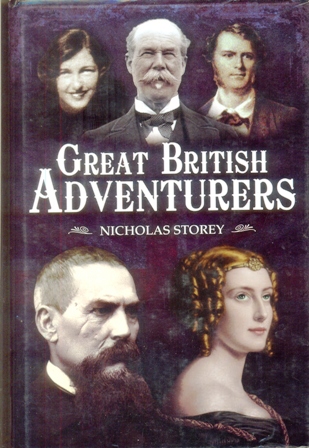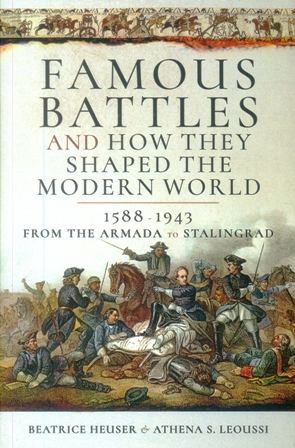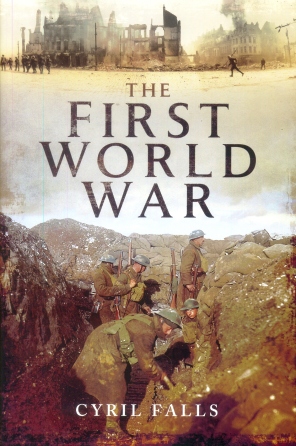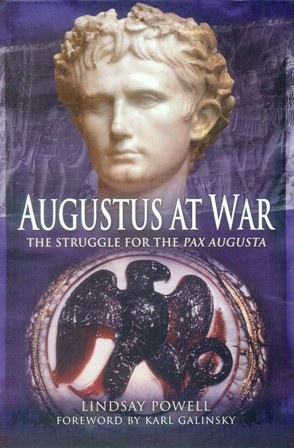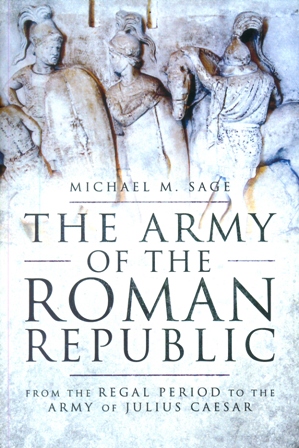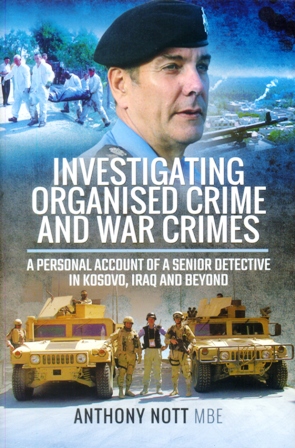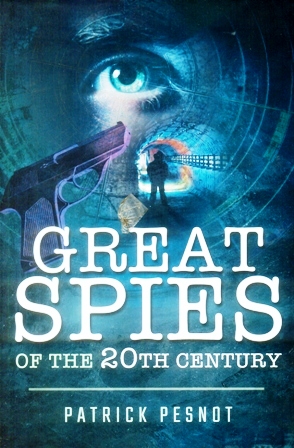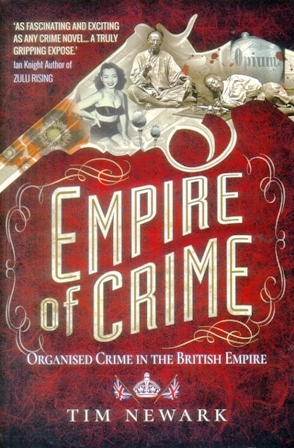-
Great British Adventurers
In selecting my adventurers, I have had to find limits. The first has been to confine my selection to men and women who are (at least loosely) British and, even then, service and adoption have sometimes, as with Krystyna Skarbeka, taken the place of birth, and I have chosen to ignore such things as competing national claims for Tenzing Norgay. The second limit that I have set myself is generally to exclude heroic adventurers in battle, simply because there is (rightly), so much already written about them, but I have found place for certain (representative) secret agents of the Second World War, whose acts (in voluntary service, beyond the call of simple duty), surely took them out of the arena of straightforward battle and into the realm of the most individual and courageous adventure. The result of these decisions remains to be judged but the overall objective has been to renew interest in the lives of some of our real heroes and heroines, as representative of the many others that there are; in an age in which contemporary sporting and pop art heroes dominate the news and provide the only readily evident inspiration, and also an age in which addiction to the computer screen nearly robs the young of memories and dreams of high adventure; of which ripping yarns are born. The third limit is a limit of time: this speaks for itself; otherwise how would Drake and Raleigh, Clive of India, General Woolf and Captain Cook not have found their places? There have to be such limits. The final limit has been to exclude those who are widely famed already: what more is there to say of General Gordon or Dr David Livingstone of Captain Robert Falcon Scott and Captain Laurence Oates; even though what has been said should often be repeated? Moreover, although Sir Edmund Hillary is acknowledged as the first conqueror of Mount Everest; Tenzing Norgay was there with him and what of George Mallory who, some time before had died, either going up or coming down?To those who might accuse me of having been obscure, I just plead that my purpose has been to bring back into ready remembrance certain men and women, not widely fted now, who had great impact upon the accrual of knowledge of: other peoples, their customs and their countries; or who have striven, often against various obstacles (including the odds), to promote exploration and, sometimes, even to preserve life and liberty for others. To the erudite, who might say that I shed little new light and that the coverage is uneven, I plead, in mitigation of sentence, that my principal purpose has been to remind of worthy lives that might still stir our blood; and to bring them together, as representative of our adventurous people, in one handy volume. James Brooke, Rajah of Sarawak 1803–1868 Mary Seacole 1805–1881 Richard and John Lander 1804–1834; 1806–1839 Jane Digby 1807–1881 General Sir James Abbott 1807–1896 Colonel John Peard 1811–1880 John William Colenso, 1st Anglican Bishop of Natal 1814–1883Sir Richard Burton 1821–1890 and John Hanning Speke 1827–1854 Emily Hobhouse 1860–1926 Mary Kingsley 1862–1900Sir Francis Younghusband 1863–1942 Colonel Percy Fawcett 1867–1925 and, in his wake, Peter Fleming OBE 1907–1971Cecil Henry Meares 1877–1937 George Mallory 1886–1924 and Andrew Irvine 1902–1924 Dame Freya Stark 1893–1993 Sir Francis Chichester 1901–1972 Gladys May Aylward 1902–1970Amy Johnson 1902–1941 Krystyna Skarbek-Granville GM, OBE, Croix de Guerre Avec Palmes, born ca. 1908–1952Sir Fitzroy Hew Royle Maclean 1911–1996 Tenzing Norgay GM 1914–1986 Violette Szabo GC, MBE 1921–1945 The Present and the Future[Colonel John Blashford-Snell b. 1936 Sir Ranulf Fiennes b. 1944 Alan Hinkes b. 1954 Adrian Hayes (45)Kenton Cool b. 1973 Dame Ellen MacArthur b. 1976 Rebecca Stephens b. 1982 Xanadu and William Dalrymple]
-
Famous Battles And How They Shaped The Modern Worl
Why are some battles remembered more than others? Surprisingly, it is not just size that matters, nor the number of dead, the 'decisiveness' of battles or their effects on communities and civilisations. It is their political afterlife - the multiple meanings and political uses attributed to them - that determines their fame. This ground-breaking series goes well beyond military history by exploring the transformation of battles into sites of memory and meaning. Cast into epic myths of the fight of Good against Evil, of punishment for decadence or reward for virtue, of the birth of a nation or the collective assertion against a tyrant, the defence of Civilisation against the Barbarians, Christendom against the Infidel, particular battles have acquired fame beyond their immediate contemporaneous relevance. The great battles of modern history examined in this second volume range from the defeat of the Armada and the relief of Vienna, to Chatham, Culloden, Waterloo, Gettysburg, the Somme and Stalingrad. In each chapter, the historical events surrounding a battle form the backdrop for multiple later interpretations, which, consciously or unconsciously, carry political agendas, some for further bloodshed and sacrifice, but others for the more recent and laudable phenomenon of reconciliation over the graves of the dead.
-
The First World War
The years 1914 to 1918 saw Europe engaged in a conflict involving a greater area and a greater number of men than history had ever before recorded. In this book, Captain Cyril Falls, known in British academic and governmental circles as an expert in military history, discusses the military side of World War I in the light of its battles, tactics and weapons; its problems of supply and transport; its armies and their commanders. The engagements in the many theaters of war in Europe, Asia and Africa are described in vivid detail, but particular attention is focused on the Western Front, where the principal and decisive battles were fought. Although it was on land that the conclusive victories were achieved, the place of sea power and of the new type of warfare waged in the air is not ignored. The role played by civilian politics is covered as well, particularly in situations where it had direct bearing on the fighting--such as in Sarajevo in 1914 where a spark touched off the Central European powder keg and signaled the beginning of the war; the political considerations which caused the US as well as Romania, Bulgaria, and Italy to enter the war late; and the revolution which caused Russia to leave it early. In telling how World War I was fought and why it developed as it did, Captain Falls decisively refutes the notion that World War I was an interlude of senseless and irresponsible slaughter during which military art stood still. He reminds us that it was a war remarkable for the idealistic spirit in which it was fought. Though the unprecedented, world-wide scale of battle, and the deadlock on the Western Front, taxed the skill of military leadership sorely, the war produced its great leaders: Haig, Allenby, Maude, Jellicoe, Beatty, Joffre, Foch, Petain, Pershing, Liggett, Sims, Falkenhayn, Hindenburg, Hipper, Conrad von Hotzendorf, and Mustapha Kemal. Their achievements as well as the indomitable spirit of the men they commanded are remembered here.
-
Augustus At War-The Struggle for The Pax Augusta
'A superb analysis of the military power that underpinned Augustus' rise to power, his conquests, and his ability to sustain his rule. Powell's achievement is to demonstrate just how much Augustus deserved his name of `Imperator'.'- Tom Holland, presenter of BBC Radio 4 Making History. Author of Dynasty: The Rise and Fall of the House of Caesar. 'Powell meticulously details and analyzes the composition, deployment, and actions of this army and provides a much needed resource of information that has no parallel in astute comprehensiveness. His superb treatment shows Imperator Caesar Augustus in action and helps us understand the military Augustus and his times more clearly.'- Karl Galinsky, Floyd A. Cailloux Centennial Professor of Classics, University of Texas at Austin. Author of Augustus: Introduction to the Life of an Emperor. 'Lindsay Powell provides us with valuable insights into an under-appreciated aspect of Augustus' reign, and does so in his usual highly competent and readable style.'- Philip Matyszak. Author of The Sons of Caesar: Imperial Rome's First Dynasty. The words Pax Augusta - or Pax Romana - evoke a period of uninterrupted peace across the vast Roman Empire. In this new book Lindsay Powell exposes the truth for the lie that it is. Almost every year between 31 BC and AD 14 the Roman Army was in action somewhere, either fighting enemies beyond the frontier in punitive raids or for outright conquest; but it was also entangled in suppressing rebellions within the borders - or itself on the verge of mutiny. Remarkably over the same period Augustus succeeded in nearly doubling the size of the Empire, outperforming either Pompey the Great or Julius Caesar for conquests. How did Augustus, a second-rate field commander, and a man known to become physically ill before and during battle, achieve such extraordinary success? Did he, in fact, have a grand strategy? The decisions Augustus made determined the future of the empire - and of the Europe which followed. Powell reveals Augustus as a brilliant strategist and manager of war. As commander-in-chief he made changes to the political and military institutions to keep the empire together - and to hold on to power. His genius was to build a team of semi-autonomous legati - `deputies' - to ensure internal security and to fight his wars for him. Often bound by ties of blood and marriage, but above all loyalty, these men - more than 50 of whom are profiled in this volume - fought for Augustus, who claimed for himself the credit for their achievements. Augustus at War is lucidly written by the author of the acclaimed biographies Marcus Agrippa and Germanicus. Drawing on archaeology, art, coins, inscriptions and documents of the period, Lindsay Powell presents a new and provocative assessment of the men and events shaping a crucial period in world history, which still reverberates down to our own time.
-
The Army of the Roman Republic
From the moment its last king was expelled (traditionally in 753) the Roman republic had to fight for its very survival. Centuries of almost continuous warfare saw Rome's armies evolve in response to a wide variety of threats which were met with mixed fortunes though always with ultimate success. As defence of the homeland turned to territorial expansion, Roman forces also had to adapt to sustained campaigns in varied terrain and climates, not to mention the changes in the Roman republic itself. Michael Sage traces the development of the republic's army from its foundation (having first set the context of their regal antecedents), down to the time of its most famous leader, Julius Caesar. The transition from clan-based forces, through the 'Servian' levy and the development of the manipular and cohortal legion is examined along with the associated weapons, tactics and operational capabilities. We see how the legions shaped up against the challenges of successive enemies from the Celts and Samnites, the Carthaginians and the hitherto-dominant Hellenistic armies based on the Macedonian-style pike phalanx.
-
Investigating Organised Crime and War Crimes
Tony Nott retired from the Dorset Police in 2002 at the rank of superintendent. He had spent most of his service as a detective, and had been involved in the investigation of a number of murder cases and other serious crimes. In 2000 he led the British forensic team on exhumations in Kosovo and describes the horror and brutality carried out by Serb paramilitaries. He then worked in Bosnia for the UN, where he was the commander of the eighty-strong UK police contingent. He describes in detail the investigation of human trafficking for the sex trade and illustrates some conflicting rivalries between the UN and the European Union police mission. He served a year in Iraq between 2004 and 2005 and gives insights into the Shia takeover of the police and other institutions; plus, some unsettling accounts of human rights abuses. He was involved in the investigation into the murder of British aid worker, Margaret Hassan, and is deeply critical about the role played by the UK government.He describes the difficulties he had in dealing with some senior members of the Iraqi Police; in particular, the refusal of a Deputy Minister of Interior, who declined to reopen an investigation into the murder of a British security contractor and four Iraqi citizens. The killers were suspected to be the local police. He then went onto serve two years in Israel and Palestine, where he worked with a US-led team to reform the Palestinian security services in cooperation with a European effort. Whilst this book covers the worst of human behaviour, it also highlights the bravery and triumph of the human spirit, by those ordinary people who were caught up in these events.
-
Great Spies of the 20th Century
Heroes to some, traitors to others, spies and intelligence officers continue to fascinate and enthral us with their abilities to operate secretly in the shadows. With these mini-biographies of twenty agents of various nationalities (including members of the DGSE, KGB, CIA, MI6 and Mossad), Patrick Pesnot and 'Mr X' bring the reader as close as possible into the world of espionage, though a panorama of intelligence history. Among the best known of these agents, the reader will find Aldrich Ames, an American accused of spying for the KGB; Eli Cohen, the Israeli spy best known for his espionage work in Syria and Klaus Fuchs, the German-born British agent who helped the USSR to manufacture its atomic bomb in 1949.
-
Empire of Crime: Organised Crime in the British Em
When Great Britain took the moral high ground and banned its lucrative export of opium from Imperial India to China, it unleashed a century of criminality. Where America's misguided Prohibition of alcohol made illicit fortunes for the Mafia, across the pond the organised criminals within the British Empire grew rich on their trade in illegal narcotics in the 20th century. _Empire of Crime_ is the first book to reveal the full extent and variety of organised crime within the British Empire in the 20th century. By delving into British colonial archives, Newark has discovered breath-taking truths about organised crime inside the British Empire. This book unravels how gangsters exploited its global trade routes to establish a new age of criminal networks that spanned the world.

